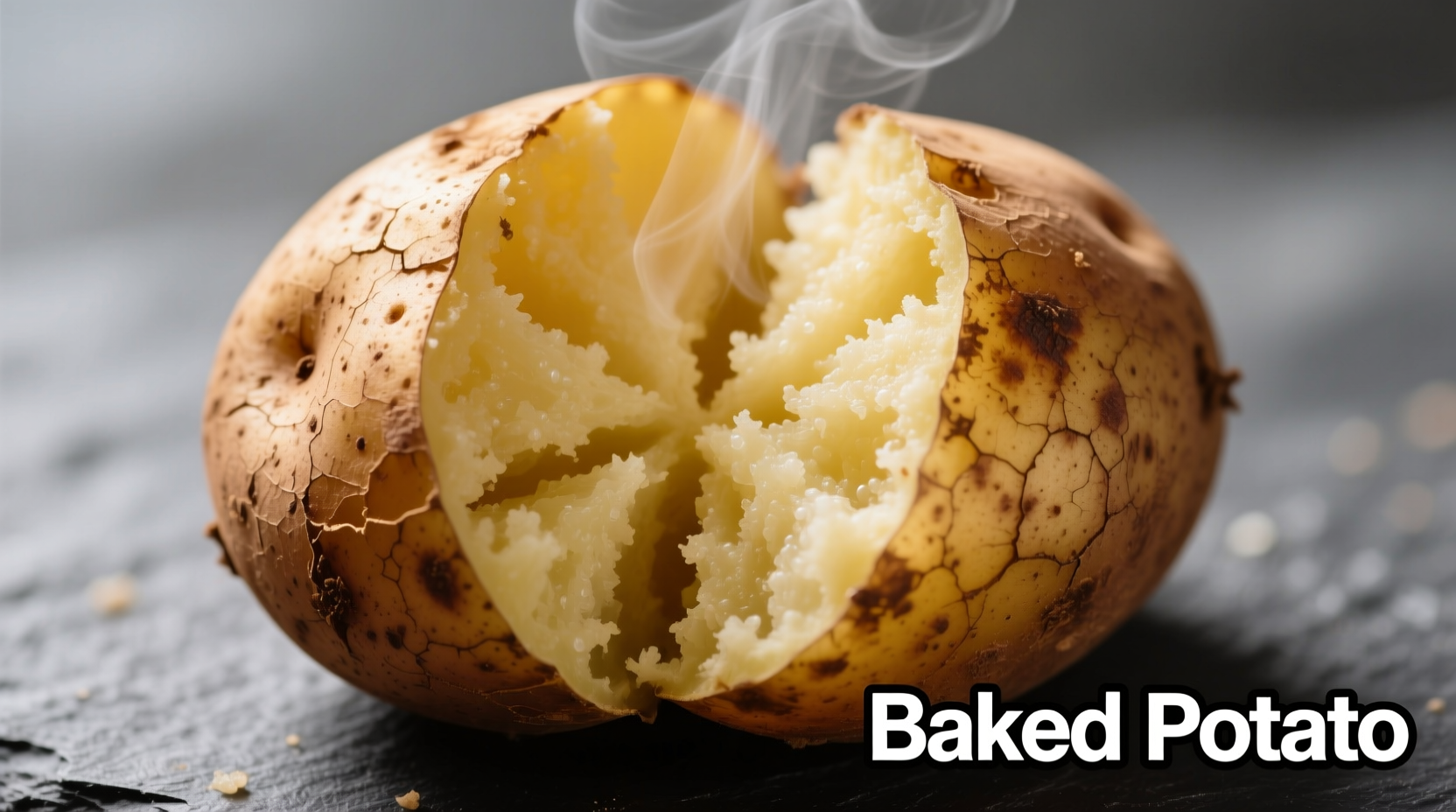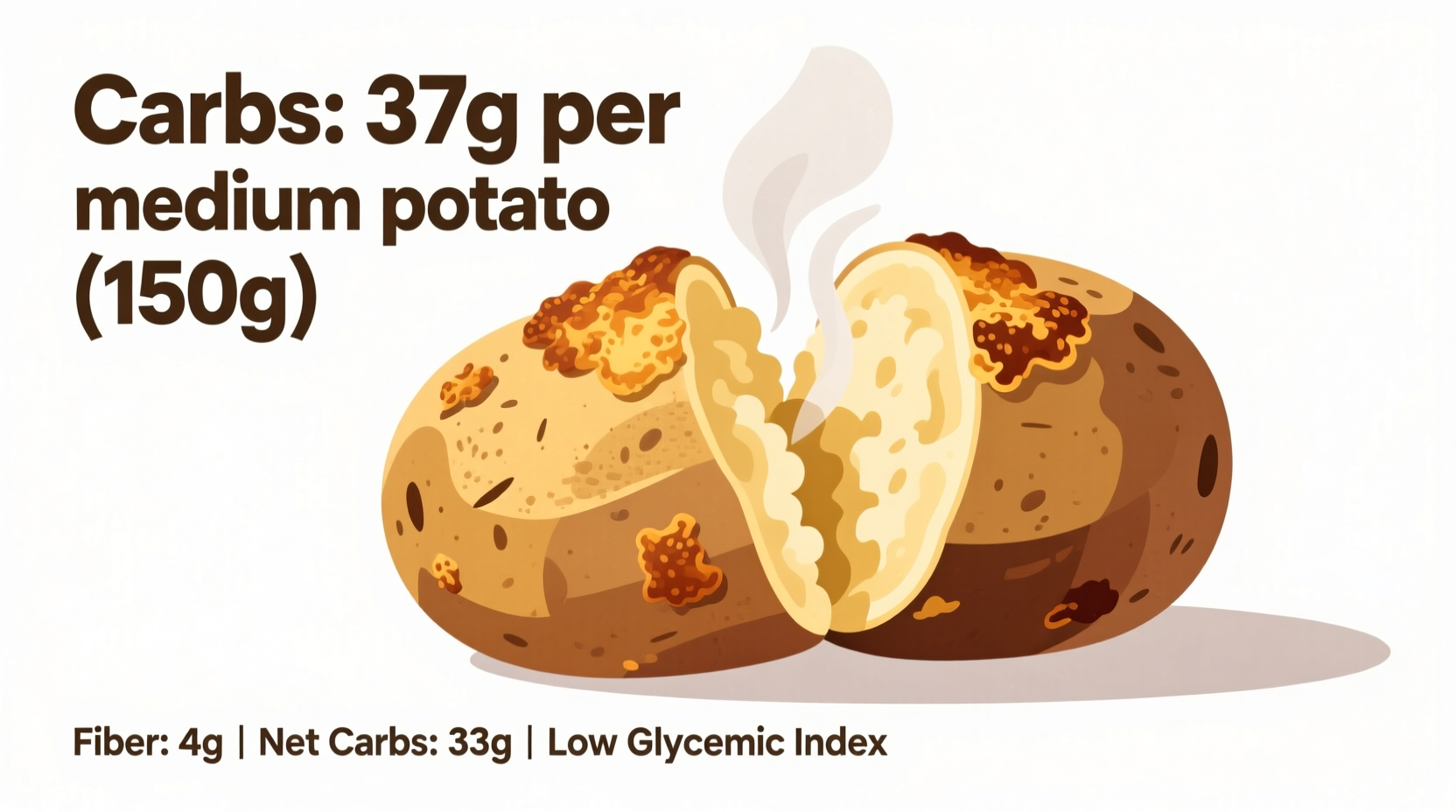Understanding the exact carbohydrate content of baked potatoes is essential for meal planning, whether you're managing blood sugar levels, tracking macros for fitness goals, or simply making informed dietary choices. Let's explore the details that affect these numbers and how to incorporate this versatile vegetable into your eating pattern.
What Determines Carb Content in Baked Potatoes
The carbohydrate count in a baked potato isn't fixed—it varies based on several key factors that directly impact your nutritional intake. Knowing these variables helps you make precise calculations for your dietary needs.
| Portion Size | Weight (grams) | Total Carbs | Dietary Fiber |
|---|---|---|---|
| Small potato | 138g | 22g | 2.0g |
| Medium potato (standard) | 150g | 26g | 2.2g |
| Large potato | 299g | 50g | 4.4g |
| Per 100g serving | 100g | 17g | 1.5g |
These values come from the USDA FoodData Central, the most authoritative source for nutritional information in the United States. The database shows that Russet potatoes—the most common variety for baking—contain these specific carbohydrate profiles when prepared without added ingredients.
How Preparation Affects Carb Content
What you do with your potato significantly impacts its nutritional profile. The cooking method and additions can transform how your body processes those carbohydrates:
- With or without skin: Keeping the skin on adds approximately 20% more fiber, which helps moderate blood sugar response
- Cooling after baking: Creates resistant starch, reducing the net carb impact by up to 25% according to research published in the Journal of Nutrition and Metabolism
- Add-ins matter: Butter, sour cream, or cheese don't add carbs, but toppings like bacon bits or pre-made mixes can add 3-8g of additional carbohydrates
- Seasoning choices: While herbs and spices add negligible carbs, pre-made seasoning blends often contain hidden sugars

Nutritional Context: Where Potatoes Fit in Your Diet
Understanding how baked potato carbohydrates compare to other common foods helps put the numbers in perspective. A medium baked potato contains roughly the same carbohydrates as:
- One slice of bread plus half a banana
- ⅔ cup of cooked white rice
- ½ cup of oatmeal
- One small apple with 10 almonds
Unlike many refined carbohydrate sources, potatoes provide valuable nutrients alongside their carbs:
- Vitamin C (providing about 30% of your daily needs)
- Potassium (more than a banana)
- Vitamin B6
- Magnesium
- Naturally fat-free
The glycemic index of a baked potato ranges from 78-85, which is considered high. However, pairing it with protein or healthy fats (like Greek yogurt instead of sour cream) can significantly reduce its blood sugar impact—a practical strategy for those monitoring glucose levels.
Practical Applications for Different Dietary Goals
How you use this information depends on your specific health objectives. Here's how different groups can apply these carb facts:
For Weight Management
With approximately 130 calories for a medium potato, baked potatoes can fit into calorie-controlled diets when portioned correctly. The high fiber content promotes satiety, helping you feel full longer. For best results, keep portions to one medium potato and focus on healthy toppings.
For Diabetes Management
The American Diabetes Association recommends including starchy vegetables like potatoes in moderation. A medium baked potato fits within a standard carbohydrate serving (15g carbs) when paired with non-starchy vegetables. Monitoring your personal blood sugar response and considering cooling potatoes to increase resistant starch can improve glycemic control.
For Athletic Performance
Athletes often use potatoes as a clean carbohydrate source for fueling. The complex carbohydrates provide sustained energy release, while the potassium content supports muscle function. Many endurance athletes consume cooled, baked potatoes before events to maximize resistant starch benefits.
Common Questions About Potato Carbohydrates
These frequently asked questions address practical concerns about incorporating baked potatoes into various eating patterns:











 浙公网安备
33010002000092号
浙公网安备
33010002000092号 浙B2-20120091-4
浙B2-20120091-4